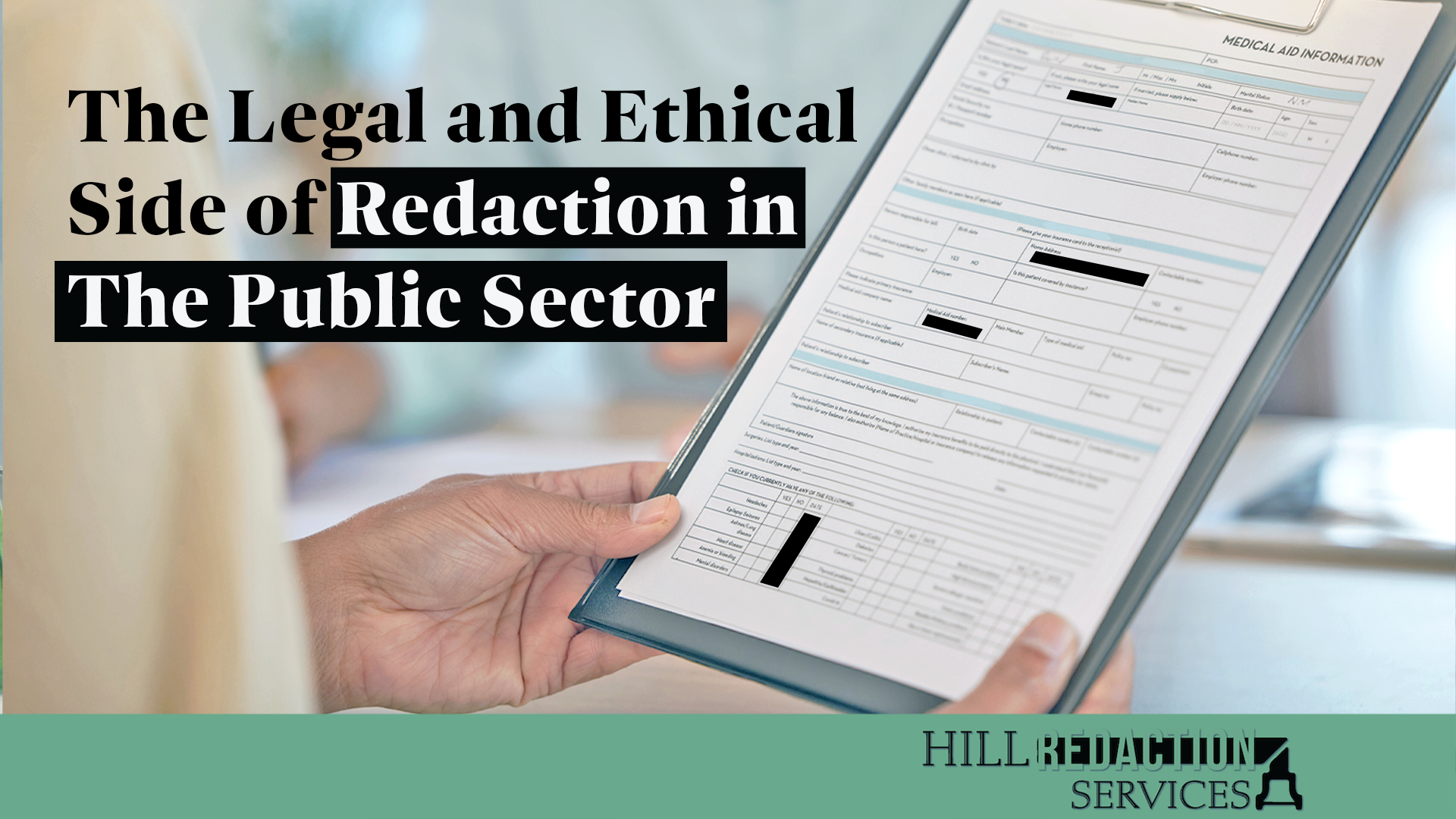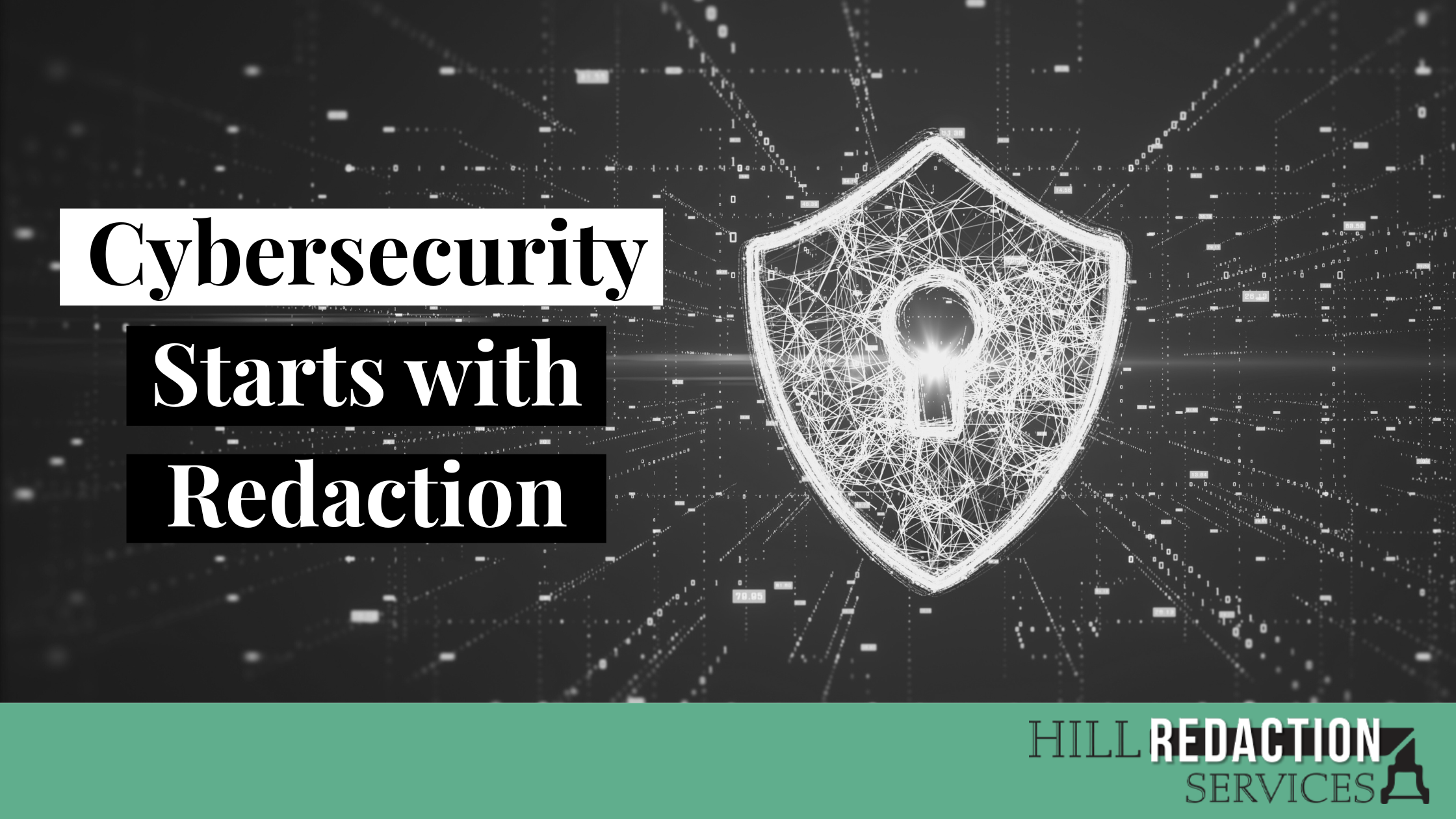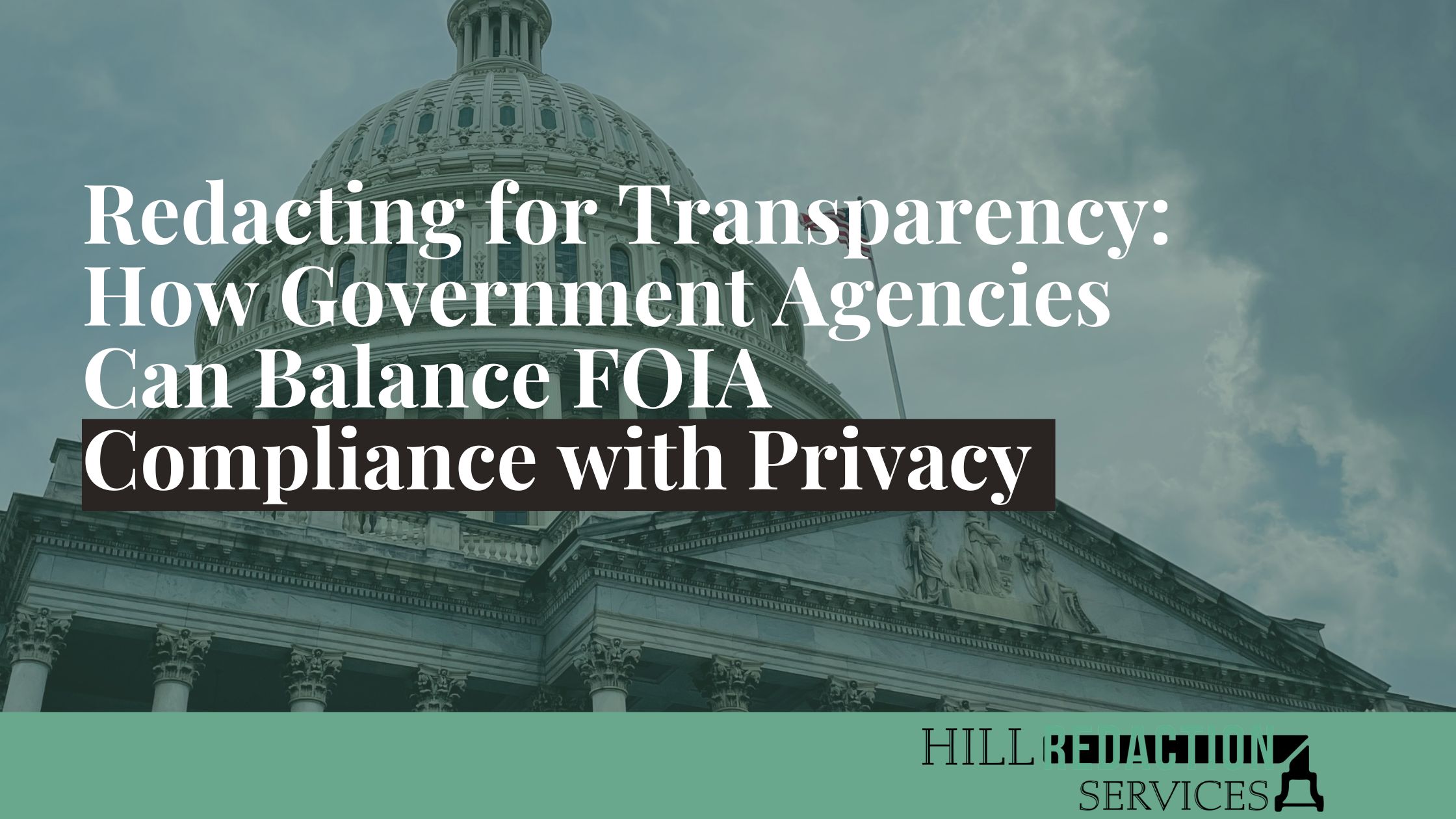
The Legal and Ethical Side of Redaction in The Public Sector
Public service is one of the highest callings, and government agencies play a crucial role in navigating between public access and data security.
The Legal Side
Government agencies follow a strict legal framework to comply with regulations like the Freedom of Information Act (FOIA) at the federal level and state-specific laws such as the Open Public Records Act (OPRA). These laws determine what information can be disclosed and what must be redacted.
Cases of Public Sector Redaction
Government-Owned Corporations and Revenue-Generating Agencies
Agencies like public utilities and transportation services handle personally identifiable information (PII) and financial data. Laws such as the Privacy Act of 1974 protect PII from sensitive data leaks.
Redacting Open Records Requests
Local government agencies must follow state regulations. For example, New Jersey’s Open Public Records Act (OPRA) requires that records be publicly accessible unless legally restricted. To balance transparency and privacy, agencies must redact PII and other sensitive details that could compromise system security or building safety.
Redacting Inmate Records
Correctional facilities and law enforcement agencies manage records containing sensitive information about inmates, victims, and witnesses. Redacting PII, such as full names and addresses, is crucial to maintaining safety and privacy. It is important to remember that the information requiring redaction can vary, especially if juveniles are involved.
Protected Health Information (PHI) in Public Services
Agencies managing healthcare programs, such as Medicaid eligibility, WIC, and those monitoring disease and immunization within a community, handle protected health information (PHI). Under HIPAA, names, medical conditions, and other sensitive health details are redacted or anonymized in public records to protect individual privacy.
We Comply. We Secure. We Protect.
At Hill Redaction Services, we recognize the importance of safeguarding PII and PHI with multiple layers of security. By working closely with the Office of General Counsel and the attorneys overseeing these cases, we ensure the highest level of protection. We redact the substantial volume of protected information found in documents that need processing, all while upholding state and federal privacy policies. Call or fill out our form to get started.
Related Posts

The Legal and Ethical Side of Redaction in The Public Sector
Public service is one of the highest callings, and government agencies play a crucial role in navigating between public access and data security.
The Legal Side
Government agencies follow a strict legal framework to comply with regulations like the Freedom of Information Act (FOIA) at the federal level and state-specific laws such as the Open Public Records Act (OPRA). These laws determine what information can be disclosed and what must be redacted.
Cases of Public Sector Redaction
Government-Owned Corporations and Revenue-Generating Agencies
Agencies like public utilities and transportation services handle personally identifiable information (PII) and financial data. Laws such as the Privacy Act of 1974 protect PII from sensitive data leaks.
Redacting Open Records Requests
Local government agencies must follow state regulations. For example, New Jersey’s Open Public Records Act (OPRA) requires that records be publicly accessible unless legally restricted. To balance transparency and privacy, agencies must redact PII and other sensitive details that could compromise system security or building safety.
Redacting Inmate Records
Correctional facilities and law enforcement agencies manage records containing sensitive information about inmates, victims, and witnesses. Redacting PII, such as full names and addresses, is crucial to maintaining safety and privacy. It is important to remember that the information requiring redaction can vary, especially if juveniles are involved.
Protected Health Information (PHI) in Public Services
Agencies managing healthcare programs, such as Medicaid eligibility, WIC, and those monitoring disease and immunization within a community, handle protected health information (PHI). Under HIPAA, names, medical conditions, and other sensitive health details are redacted or anonymized in public records to protect individual privacy.
We Comply. We Secure. We Protect.
At Hill Redaction Services, we recognize the importance of safeguarding PII and PHI with multiple layers of security. By working closely with the Office of General Counsel and the attorneys overseeing these cases, we ensure the highest level of protection. We redact the substantial volume of protected information found in documents that need processing, all while upholding state and federal privacy policies. Call or fill out our form to get started.






